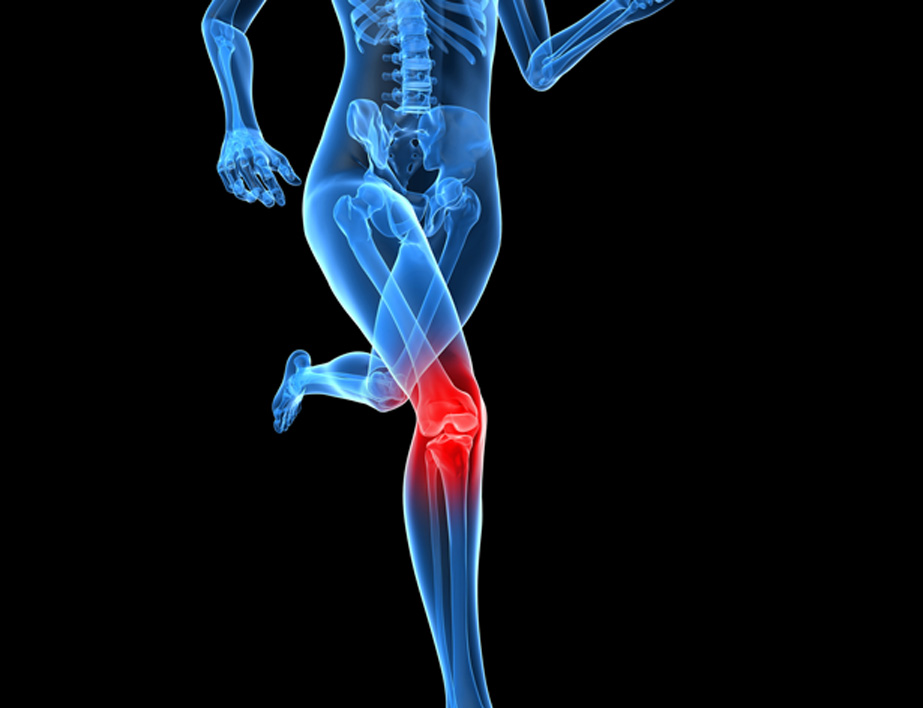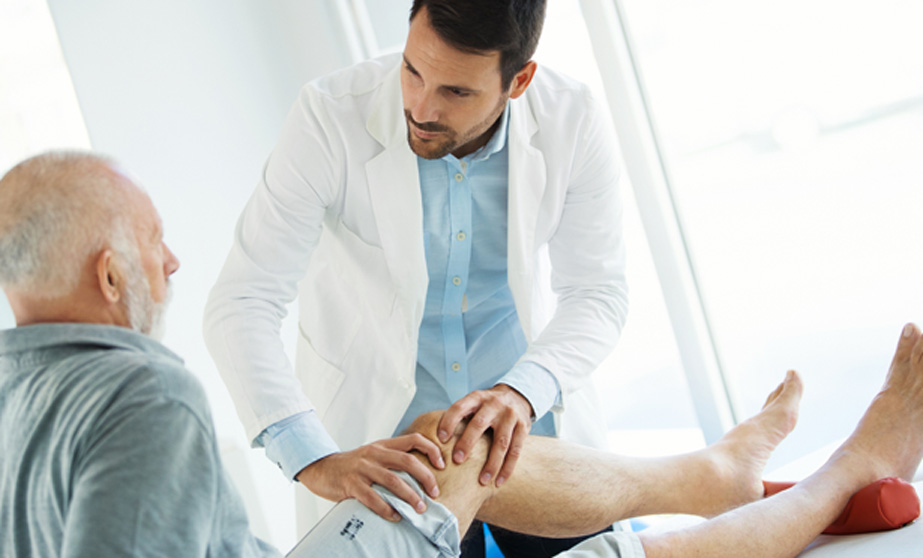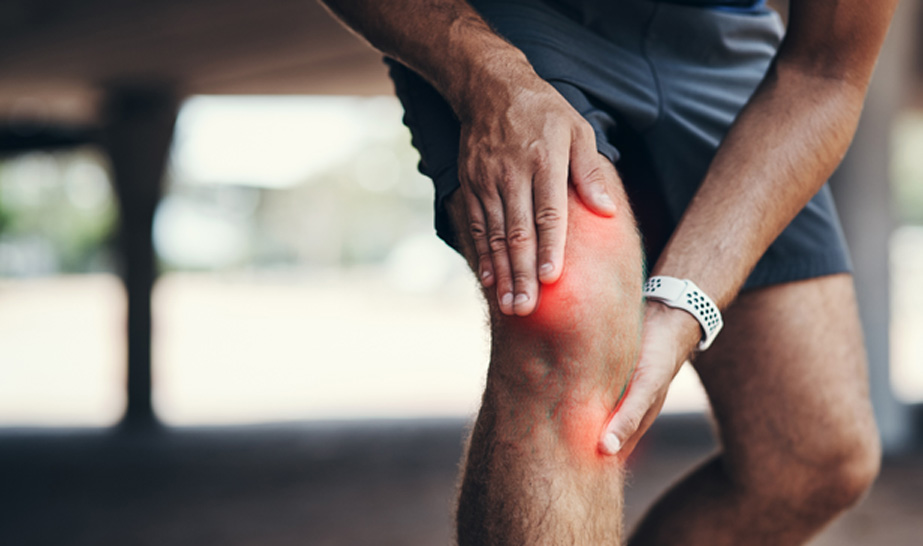
Knee pain affects individuals of all ages and can be a sign of a variety of conditions, such as arthritis, gout and infections.
Minor knee pain usually resolves with self-care. More serious injuries may require physical therapy, knee braces, steroid injections or surgery.
Symptoms of Knee Pain
Symptoms of a condition affecting the knee may include:
- Swelling and stiffness in the knee
- Redness and warmth to the touch
- Weakness or instability
- Inability to fully strengthen the knee
- Popping or crunching sounds
Causes of Knee Pain
Knee pain may be caused by any of the following conditions.
ACL injury
The anterior cruciate ligament (ACL) connects the shinbone to the thighbone. An ACL injury is common among basketball players, soccer players and other athletes.
Fractures
The bones in the knee may break or become weakened over time by osteoporosis, increasing the risk of a knee fracture.
Torn meniscus
The meniscus is cartilage that acts as a shock absorber between the shinbone and thighbone. The meniscus may be torn by suddenly twisting the knee while bearing weight on it.


A knee injury can cause inflammation in the bursae, which are small sacs of fluid that cushion the outside of the knee joint.
Patellar tendinitis
The patellar tendon may become inflamed and cause pain. Runners, cyclists, skiers and those involved in jumping sports and activities are at greater risk of developing this condition.
Knee pain may also be caused by different types of arthritis:
- Osteoarthritis
- Rheumatoid arthritis
- Gout
- Pseudogout
- Septic arthritis
- Injury or degeneration of bone or cartilage may cause parts to break off, interfering with knee joint movement
- Iliotibial band syndrome
- Dislocated kneecap
- Hip or foot pain
Risk Factors of Knee Pain
Individuals are at increased risk of knee pain if they:
- Are overweight or obese
- Lack muscle flexibility or strength
- Play certain sports
- Work in professions that place repetitive stress on the knees
- Previous injury
When to See a Doctor
Patients should schedule a visit to their doctor if they experience any of the following symptoms:
- Difficulty bearing weight on the knee or feel as if the knee is unstable
- Significant knee swelling
- Difficulty fully extending or flexing the knee
- Notice an obvious deformity in the leg or knee
- A fever, in addition to redness, pain and swelling in the knee
- Severe knee pain associated with an injury
Diagnosing Knee Pain
During an initial visit, the physician will inspect the knee for signs of swelling, pain, warmth, tenderness and bruising. The physician will also check the knee’s range of motion and push on or pull the joint to evaluate knee structure.
The following imaging tests may be performed to determine the exact cause of knee pain and extent of the damage:
- X-ray
- Computerized tomography (CT) scan
- Ultrasound
- Magnetic resonance imaging (MRI)
Lab tests may be necessary if the physician suspects an infection or inflammation.
Treating Knee Pain
Knee pain may be treated with medications, therapy or injections. A genicular nerve injection may help alleviate pain and reduce inflammation.
What to Expect During a Genicular Nerve Injection
The procedure begins with the physician cleansing the injection site with an antiseptic. The physician will use ultrasonic guidance to ensure the needle is inserted in the correct place. Once the needle is correctly positioned, the local anesthetic and steroid will be injected.

